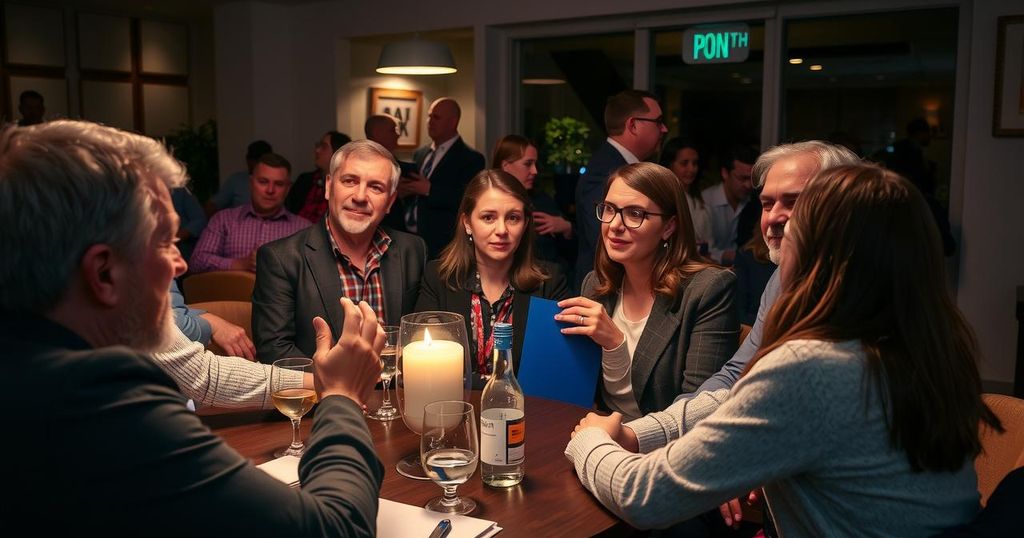World news
ALICE WEIDEL, ANTISEMITISM, ASIA, BENJAMIN HÖHNE, BRANDENBURG, CHRISTIAN DEMOCRATS, DOMINIK KAUFNER, DW, EUROPE, EUROPEAN IDENTITARIAN NETWORKS, EUROPEAN UNION, GERMANY, LOWER SAXONY, MARTIN SELLNER, NORTH RHINE - WESTPHALIA, PARLIAMENTARY ELECTIONS, POLITICS, POPULISM, SPD, SVEN TRITSCHLER, SYRIA, TECHNICAL UNIVERSITY, WORLD WAR II
Jamal Abdullah
0 Comments
Impact of Magdeburg Attack on German Elections and Migration Policies
The Magdeburg Christmas market attack has been quickly politicized, with far-right figures exploiting the incident. Misinformation regarding the attack spread rapidly, framing the perpetrator as a refugee linked to immigration issues. Analysts predict that security and migration themes will dominate upcoming federal elections, reflecting a trend towards right-wing politics in German discourse.
In the aftermath of the recent devastating attack on the Magdeburg Christmas market, immediate attempts to politicize the incident were evident. Misleading information swiftly emerged, claiming multiple attackers and linking them to the refugee crisis. Prominent far-right figures, including members of the Alternative for Germany (AfD), sought to exploit the tragedy, asserting that stricter immigration policies would have prevented such incidents. The identified perpetrator, Talib A.*, a Saudi citizen, had expressed support for the AfD, further intensifying political narratives surrounding migration and security ahead of upcoming federal elections. Political analysts anticipate that security and migration will dominate the election discourse, emphasizing a shift towards more right-wing policies.
The Magdeburg attack has emerged as a critical event likely to influence the political landscape in Germany, particularly with federal elections approaching. It has triggered a resurgence of right-wing narratives focusing on immigration as a security threat, which have been escalated by politicians from the AfD. Furthermore, the historical context of domestic security concerns in German politics illustrates how such incidents can shift public discourse and party positioning, particularly concerning migration and safety laws.
The Magdeburg attack has not only resulted in loss of life but has also resurfaced contentious political debates surrounding immigration and security in Germany. With a federal election on the horizon, the response from right-wing parties could significantly shift public sentiment. As right-wing narratives gain ground, ongoing discussions over migration policy and its perceived risks will likely overshadow other essential aspects of Germany’s socio-political landscape.
Original Source: www.dw.com




Post Comment